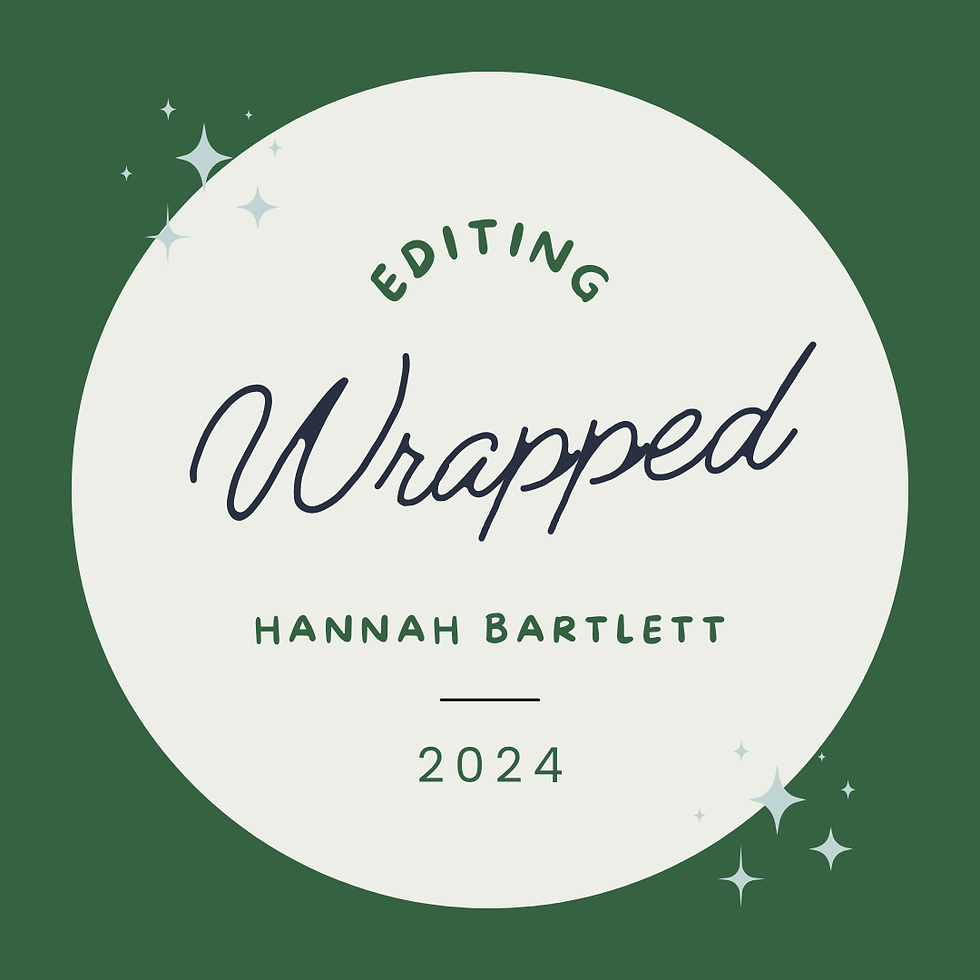How Being Neurodivergent Makes Me a Better Editor
- Hannah Bartlett
- May 12, 2024
- 3 min read
Updated: Sep 30, 2024
I'm not shy about being neurodivergent. After a post I made on Threads about being a neurodivergent editor wanting to work with neurodivergent writers went viral, people had questions. How are my business practices different? How does this affect my editing?
I hope this blog will answer those questions and inspire my fellow neurodivergent writers and editors!
How Being Neurodivergent Makes Me a Better Editor:
Empathy: One of my favorite things about working with neurodivergent writers is that we just "get" each other. My neurodivergence gives me hyper-empathy, so when a writer is telling me what they're struggling with, I can immediately put myself in their shoes. Need more time to make a decision? That's totally fine. Need your feedback to be extra kind for Rejection Sensitivity Dysphoria? I've got you! Not feeling confident about your manuscript? Tell me your story. Something I've said to my family that I will now say to you is: "Half of my job as an editor is emotional support. Imposter syndrome is too hard to fight alone, and creative people need as many cheerleaders as they can get." Note: This emotional labor is something I choose to take on for my clients. Other editors might not choose this, and that's perfectly okay. I also am not a therapist, and I have boundaries in place for my client and I's health and professional relationship.
Being detail oriented: Another gift of my neurodivergence is that I'm extremely detail oriented. This helps me immensely as an editor, as a lot of my work is checking manuscripts for errors, which can be extremely evasive. I found a period in a different font size once! I latch on to things that many people miss, and it has been helping my editing training so much, and it was fantastic in my creative writing degree and my internship with Yale University Press.
Hyperfocus: Books have been my special interest since I first learned how to read. This is my passion! Because I'm so excited to work on every manuscript, my brain allows me long periods of hyperfocus. This can lead to early delivery times for my clients! (Don't worry; I have as system to avoid burnout.)
Giving feedback: Writers can need different kinds of feedback. Some might need more reassurance, others might need a more matter-of-fact tone to help with indecision. As I said in point one, I can tailor my feedback to any "flavor" of neurodivergence!
Communication: I am extremely communicative with my clients. I don't want anyone to be afraid to shoot me a question, or to be confused about the process. To help with this, I write concise yet detailed emails, with strategic bolding and clear instructions. Zoom calls are also an option!
Unique experiences: Being neurodivergent, especially diagnosed late in life, has caused me to have a lot of experiences unique to our ever-increasing neurotype. This means that I get it! Were you bullied as a kid for being neurodivergent even though you didn't know it? Me too! Writing extremely personal stuff? I can probably relate in at least some way, and I especially understand certain situations more than a neurotypical editor might.
Accommodations: A lot of what I've already discussed in this post are a few examples of the accommodations I can provide for my clients. I also can offer transcripts of calls, communication only done via email, and more. I try to anticipate your needs, and I'm always open to suggestions for how I can accommodate you.
Here is a blog post I wrote that has accommodation ideas both writers and editors can make. I hope it's helpful!
Feel free to reach out via my contact page to hear more about my experience with neurodivergence, and how I can help you!
Happy writing!





Comments